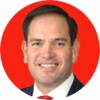"That's the difference between you and me: you are afraid, and I am not afraid. I realize there is danger, but why should I be afraid?"
These words from Alexei Navalny, spoken to a reporter in 2011, show the extent of the Russian opposition leader's fortitude.
Russia—and the world—are worse off without him.
There have been few people who have demonstrated such fortitude against Vladimir Putin. For more than 10 years, Navalny openly opposed the Russian dictator, calling out the "crooks and thieves" in the Kremlin who enabled his corrupt reign. Navalny knew exactly what the consequences for his dissent might be, especially after Boris Nemtsov, his friend and fellow opposition leader, was assassinated in 2015. Still, he continued to press for change in Russia, because he loved his country more than his own life.
Navalny rose to global prominence in 2017, when he ran for president against Putin––and Kremlin agents responded by throwing chemicals into his eyes.
In 2020, Putin tried to poison Navalny again, which international news agencies recorded in painstaking detail. What followed, however, was even more remarkable: Navalny decided to reenter Russia the following year.
When asked why he was traveling to what seemed like certain death, Navalny said he didn't want to "give Putin the gift of not returning."
This courage didn't go to waste.
I met with Russian opposition figures in 2022, and even though the Kremlin had just arrested both Navalny and anti-authoritarian activist Vladimir Kara-Murza, I could tell that the Russian people's aspirations for freedom were alive and well.
Would that have been the case if Navalny had fled? Maybe, but I bet Navalny's self-sacrificial example was a powerful motivator.
Navalny never gave up hope or lost his spirit. For the last years of his life, he was imprisoned in the "Polar Wolf," a Siberian gulag whose conditions recall all the inhumanity of Soviet tyranny. But he still managed to crack jokes with his judge and send love letters to his wife—up until virtually the day of his death at the hands of Putin's bloodthirsty regime.
I'm sure the Kremlin feels more secure with their chief domestic opponents gone and Kara-Murza behind bars. But that just shows the weakness of authoritarian governments.
Navalny, for one, saw politics more clearly than Putin. His prediction that the dictator's closed, fear-based system would reap degradation for Russia proved devastatingly accurate, as the war in Ukraine continues to take thousands of lives and waste trillions of rubles.
What would the world look like if Putin had listened to his opponents rather than his yes-men? What would it look like if other authoritarians did the same: if Nicolás Maduro allowed María Corina Machado to run against him in an open election, or if Xi Jinping promoted his officials based on merit instead of personal loyalty?
Such a world would be safer for West-aligned democracies. There would be no war in Ukraine, no troops massed on the border of Guyana, and probably no COVID-19. But it would also be a better world for the people of Russia, Venezuela, China, Cuba, Nicaragua, North Korea, Iran, and so many other countries.
That dictators like Putin prefer this world to that one reveals their great tragedy—that their ultimate goal is not their nations' well-being but their own self-preservation and self-aggrandizement.
Alexei Navalny, like Nemtsov and Kara-Murza, was different. He put his nation first, up until the bitter end. I hope Navalny's example inspires many others, because we could use more people like him.
Marco Rubio, a Republican, is a United States Senator from Florida.
The views expressed in this article are the writer's own.
Newsweek is committed to challenging conventional wisdom and finding connections in the search for common ground.
Newsweek is committed to challenging conventional wisdom and finding connections in the search for common ground.
Alexei Navalny's Death Is a Loss for Russia and the World
 4
4
 0
21.02.2024
0
21.02.2024
"That's the difference between you and me: you are afraid, and I am not afraid. I realize there is danger, but why should I be afraid?"
These words from Alexei Navalny, spoken to a reporter in 2011, show the extent of the Russian opposition leader's fortitude.
Russia—and the world—are worse off without him.
There have been few people who have demonstrated such fortitude against Vladimir Putin. For more than 10 years, Navalny openly opposed the Russian dictator, calling out the "crooks and thieves" in the Kremlin who enabled his corrupt reign. Navalny knew exactly what the consequences for his dissent might be, especially after Boris Nemtsov, his friend and fellow opposition leader, was assassinated in 2015. Still, he continued to press for change in Russia, because he loved his country more than his own life.
Navalny rose to global prominence in 2017, when he ran for president against Putin––and Kremlin agents responded by throwing chemicals into his........
© Newsweek
 visit website
visit website






















 Toi Staff
Toi Staff Gideon Levy
Gideon Levy Belen Fernandez
Belen Fernandez Andrew Mitrovica
Andrew Mitrovica Mort Laitner
Mort Laitner Nikkei Editorial
Nikkei Editorial Rami G Khouri
Rami G Khouri Ali Fathollah-Nejad
Ali Fathollah-Nejad
